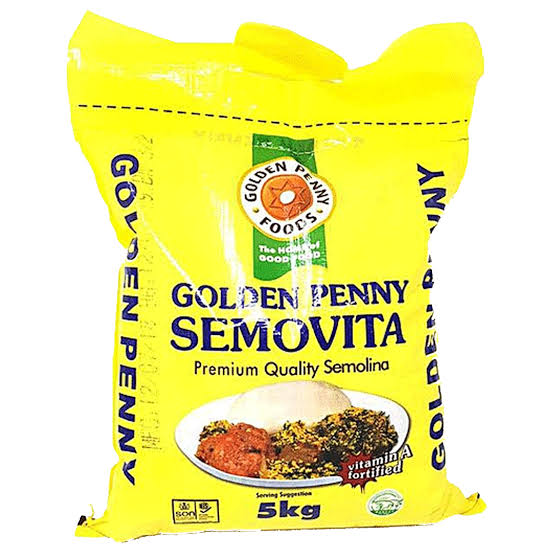The National Agency for Food and Drug Administration and Control (NAFDAC) says its scientific analysis of Golden Penny Semovita content did not reveal any plastic material.
The Director-General of NAFDAC, Prof. Mojisola Adeyeye, who made this known in a statement issued on Monday, said the agency’s post-marketing analysis was over the claim by a woman in a video on social media that Golden Penny Semovita has plastic content.
Adeyeye said the woman claimed that the residue she got after sieving the Semovita content was plastic.
The NAFDAC boss added that the post-marketing analysis also followed a viral video circulated in 2020 showing a similar situation in a community in the country.
She stated that upon receiving all the alerts from various quarters, she gave a directive to conduct emergency post-marketing analysis using different brands of Semovita.
Adeyeye said the agency investigated this claim by conducting appropriate analytical testing in its internationally-accredited laboratories, adding that the results showed that there was no plastic or any similar harmful contaminant in Golden Penny Semovita and that it contained the expected components plus the required Vitamin A.
The NAFDAC DG said: “NAFDAC, therefore, wishes to inform the general public that the claim in the social media video assertions is misleading.
READ ALSO: NAFDAC seals pharmaceutical coy for producing unregistered products
“The alleged Golden Penny Semovita is a brand of Semolina, a very popular flour made from wheat, and consumed in several parts of the world.
“Semolina contains mainly water, carbohydrates, and about 13 per cent of gluten-forming proteins.
“Gluten is made up of two classes of proteins – glutenin and gliadin, which upon addition to water combines to form gluten, a protein that gives nutritive value and imparts other characteristic properties to the product.
“Glutenin normally gives a bread though the ability to rise during baking while gliadin gives it the viscous and elastic (viscoelastic) properties, or it simply makes it extensible and elastic.
“This latter property is the rubbery/plastic-like appearance that was exhibited in the said video, Semovita has no plastic content in it.”
Adeyeye noted that the content only exhibits viscous and elastic properties, adding that the rubbery-like material that was observed in the video after washing with water is the gluten that formed after the gluten-forming proteins get mixed with water.
She said Golden Penny Semovita is manufactured by Flour Mills of Nigeria Plc., a registered company which has been granted marketing authorisation by NAFDAC to manufacture the product and offer for sale in Nigeria.
According to her, the company’s operations were certified by NAFDAC after meeting the requirements of Good Manufacturing Practice (GMP) and the relevant Nigerian Industrial Standards (NIS).
The NAFDAC boss, therefore, assured Nigerian that Golden Penny Semovita and all other Semolina products registered by the agency are safe for human consumption having been approved by the agency.
- ALTON chair: Telecoms shouldn’t be used as palliative for economic woes - May 10, 2024
- Kogi govt: Bandits kidnapped 9 varsity students - May 10, 2024
- Reps member Isa Dogonyaro dies at 46 - May 10, 2024










